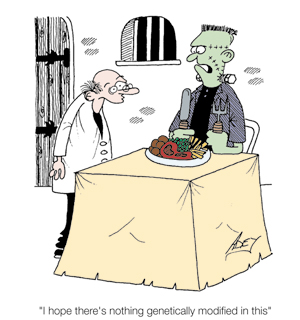Today is my birthday. That puts me in a group that includes Elvis Presley and Stephen Hawking. It’s nice to share this date with such talented and brilliant people. Elvis was fourteen years my elder. Stephen is 7 years older than me. What I have in common with both is music and science. I consider these two to be somewhat related.
Music is about the relationship of sounds and rhythms. It is about our senses and about an artistic way for us to celebrate human abilities we share with birds and probably their dinosaur ancestors based on paleontological hypotheses, and whales. The relationship of harmonics is all about sound waves and interaction with the atmosphere. Singing is an act that involves our air passages, lungs, nose and mouth in a physiologically complex interaction. And dancing is a physical response to music created by others of our species. When I watch birds in courtship dances I often think of the dances I went to in high school.
But I digress. What I really wanted to write about was an interesting piece that appeared in the media the last couple of days on the subject of GMO technology.
A Sea Change in the GMO Debate
It seems that an environmentalist spokesperson for the anti-genetically modified organisms or GMO movement, has recanted his “beliefs.” At a speech this January 3, 2013, given to the Oxford Farming Conference, Mark Lynas (see his picture at the event below), a founder in the movement to ban GM crops in the 1990s, stated
“I apologize for having spent several years ripping up GM crops.”
Why did he change his mind?
He states,“the answer is fairly simple: I discovered science, and in the process I hope I became a better environmentalist.”
You can watch his entire speech and the questions that followed from the audience by clicking on the link provided here. It is worth a listen.
Lynas’ conclusions after studying the science on the subject was that the big bad companies like Monsanto and DuPont that were developing GM foods were in fact making a difference in the world for farmers, and the countries needing increased crop yields to meet their growing populations.
In his recantation he notes that all of his cherished assumptions and beliefs were largely mythical. These included:
- The myth that GM foods would mean increased use of fertilizers and chemicals. That has not been the case. These crops use less of both.
- The myth that only the big companies benefited from GMO. They do but not solely. Farmers and consumers benefit as well.
- The myth that nobody wanted GM crops. It turns out despite resistance from environmentalists GM crops were being smuggled or pirated by Developing World countries desperate to increase their food production.
- The myth that genetic manipulation at the molecular level was dangerous. It turns out it is no more dangerous than manipulation through conventional cross breeding and it eliminates much of the trial and error that leads to failures.
- The myth that mixing genes from unrelated species was unethical? The truth is that different plants have been doing it from the beginning of life, and that viruses and insects constantly introduce new genetic information into plants and animal species. Some gets retained, and some cause disease and death.
- The myth that organic produce is healthier and better for human consumption. It turns out that organic yields are lower and that organic is about ignoring technological advancements because organic is like designer jeans. It’s not that it’s bad, it’s just appealing to aesthetics and meeting a cultural preference largely fostered by the Developed World.
Ultimately, his final rejection is built around solving the problem of the world’s growing population. With more than 9 billion forecasted to be alive in 2050 based on current trends, GMO represents the best way to ensure we can produce on the arable land we have, the crop yields we will need without us increasing deforestation and creating more marginal farmland. And GM can develop drought tolerant, pest resistant, and other beneficial traits in food crops to offset the potential impact of climate change in the same period of time. That’s because, rising expectations in the Developing World will increase food demand equal to the quality and volume currently consumed only in the Developed World. So we will need to double agricultural production. That won’t happen with the best of organic farming methods, or through traditional agriculture. Only GMO can get us the results we will need.
Lynas concludes:
“The GM debate is over. It is finished. We no longer need to discuss whether or not it is safe – over a decade and a half with three trillion GM meals eaten there has never been a single substantiated case of harm. You are more likely to get hit by an asteroid than to get hurt by GM food. More to the point, people have died from choosing organic, but no-one has died from eating GM.”
For some of my readers my publishing of this recantation will cause upset but it is hard to argue with Lynas. There is no doubt that GMO represents a technological advancement with huge potential. If we can better understand both its upside as well as the real problems it may entail, without us getting all Luddite based on our fears, uncertainty and doubt, we will be better for it. The science of GMO is showing us a way to solve what could be an intractable problem. We have a solution and its GMO.
A final note
My daughter just informed me that it is not just Elvis and Stephen’s birthday today. It is also the birthday of David Bowie. Shirley Bassey (one of my favorite jazz vocalists), Bob Eubanks (The Newlywed Game), Jason Giambi (the ex New York Yankee), and Jose Ferrer who I will always remember as the one and only Cyrano de Bergerac. If any of you, my readers, share January 8th as your birthday, please write and let me know. And thanks for dropping by.










